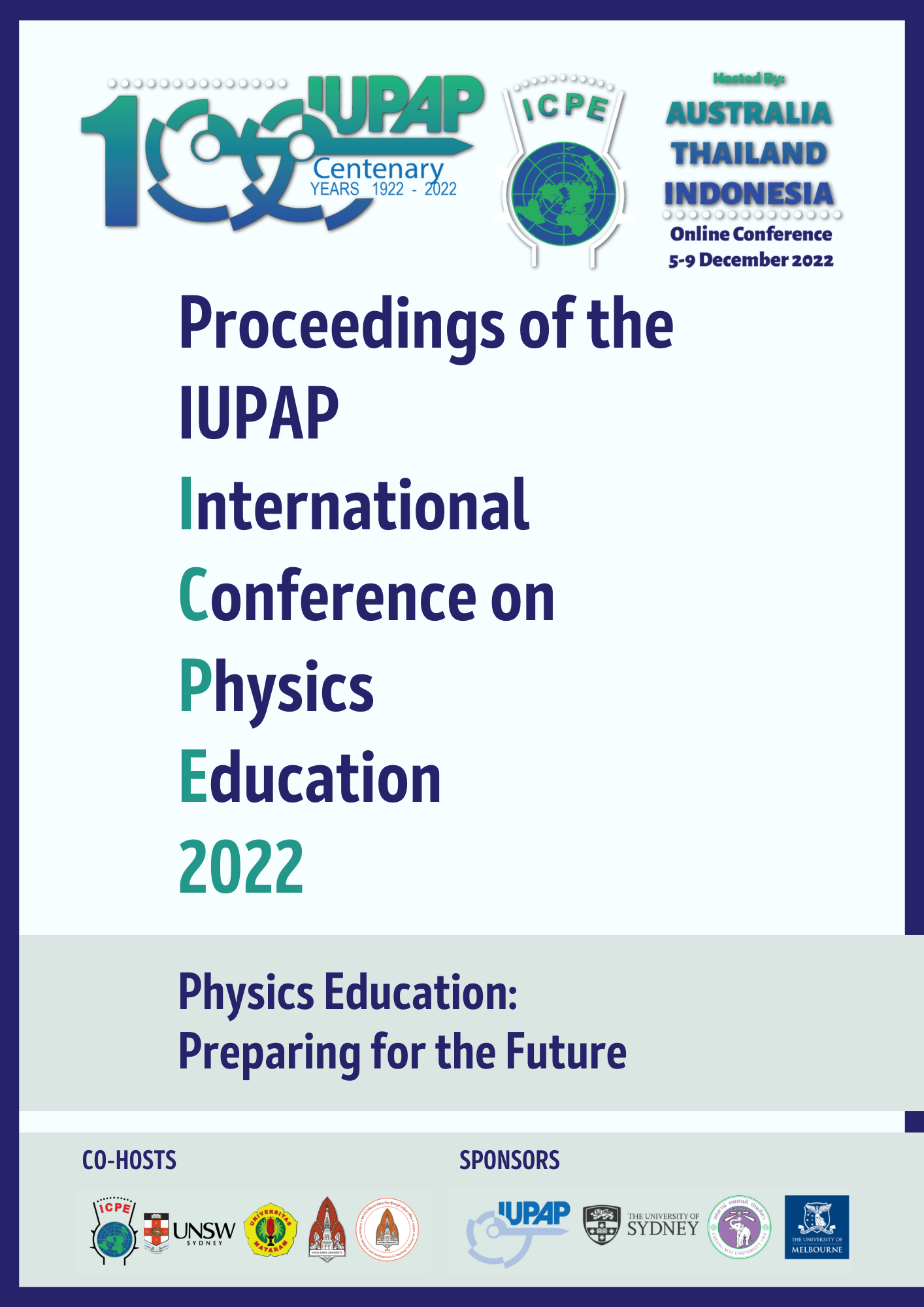ICPE Medal Award
Talk: Considerations about the developments in physics education research over the last decades
Keywords:
Physics Education, Physics Education Research, Memories of researchersAbstract
In a recent study carried out with researchers considered by their peers as pioneers of science education in Brazil, we have found important factors for the constitution of this field of research, as well as the characteristics of research in physics teaching. Based on literature that addresses and compares the development of science and science teaching, we describe the evolution of research and graduate studies in physics teaching in Brazil, relating them to intrinsic (national) and extrinsic (international) factors. We note that, as in the development of science, science education is not neutral either and hinges on several conditions that interfere with classroom teaching. We will highlight current themes that are present in research events in physics education, such as teaching for people with special needs, the presence of women in physics, teaching physics to other minorities, decolonization, and the advancement of the problematization of teaching through socioscientific questions. We understand that these advances, in the case of the Brazilian context, were possible due to the redemocratization of the country. We propose other current issues for discussion that arise for teaching physics in Brazil, such as the gap between the production of knowledge in the area - in general at universities, via postgraduate programs and research groups - and teaching on the school grounds. We cite, for example, the lack of interest in the scientific career, the dropout rates in physics degree courses and among in-service teachers, which we regard as challenges in other countries as well. More recently, there have been issues such as the denial of science, the growth of fundamentalist sects and attempts to interfere in education by groups that advocate a “no-party school”.
Downloads
Published
Issue
Section
License
Authors who publish with the Proceedings of the International Conference on Physics Education 2022 agree to the following terms:
a) Authors retain copyright and grant the journal right of first publication with the work simultaneously licensed under a Creative Commons Attribution License (https://creativecommons.org/licenses/by/4.0/) that allows others to share the work with an acknowledgement of the work's authorship and initial publication in this journal.
b) Authors are able to enter into separate, additional contractual arrangements for the non-exclusive distribution of the journal's published version of the work (e.g., post it to an institutional repository or publish it in a book), with an acknowledgement of its initial publication in this journal.
c) Authors are permitted and encouraged to post their work online (e.g., in institutional repositories or on their website) prior to and during the submission process, as it can lead to productive exchanges, as well as earlier and greater citation of published work (See The Effect of Open Access - http://opcit.eprints.org/oacitation-biblio.html).
Privacy Statement The names and email addresses entered in the Proceedings of the International Conference on Physics Education 2022 site will be used exclusively for the stated purposes of this journal and will not be made available for any other purpose or to any other party.
